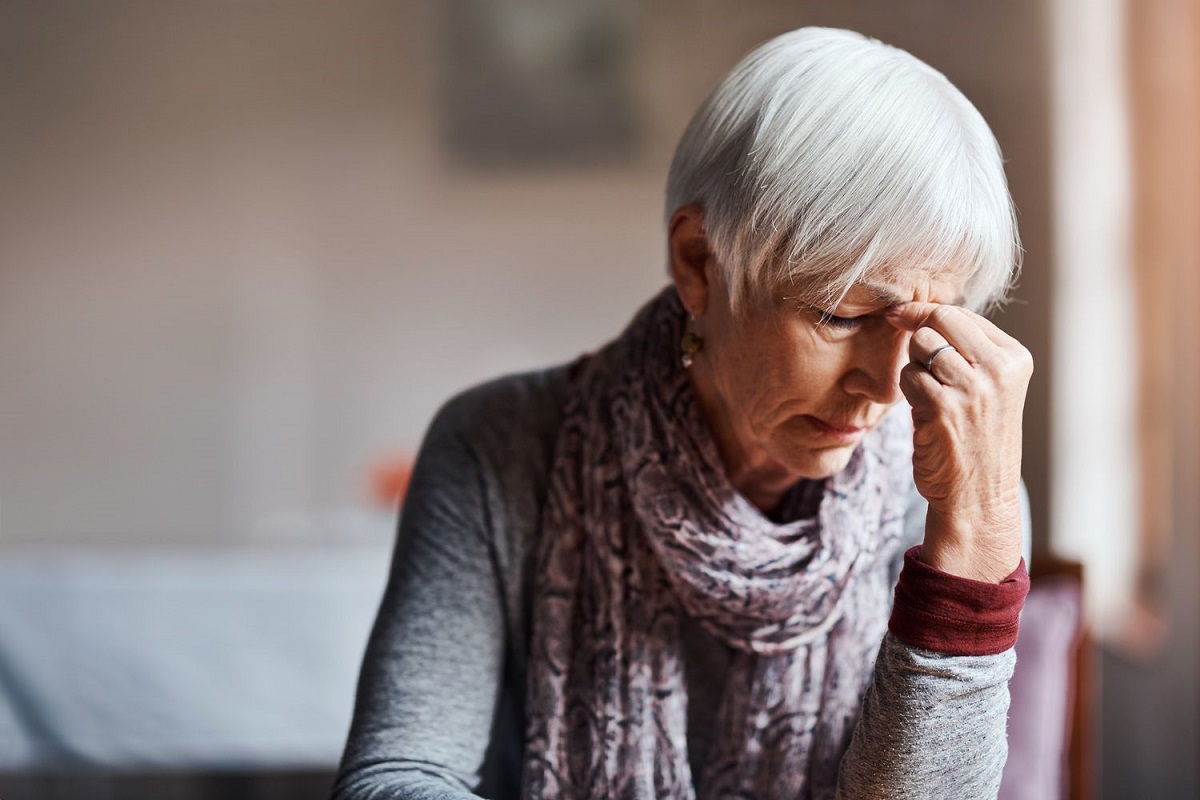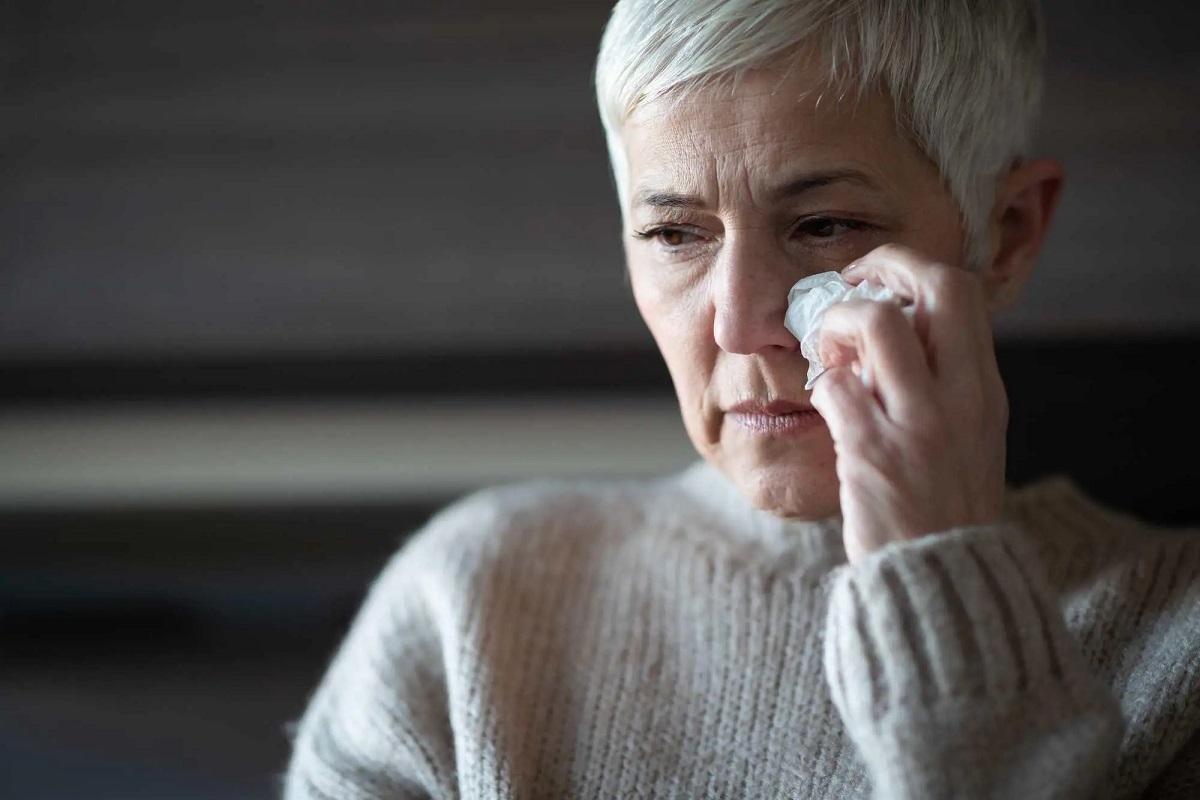The Widowhood Effect: The Health Consequences Of Losing A Spouse

Widowhood Effect: Research published in Public Health Journal indicates that individuals over 50 face a 66% higher risk of death within the first three months after their spouse’s death.
Losing a partner can be profoundly challenging. In addition to the deep grief and anxiety about the future, the death of a spouse can have serious repercussions on the physical health of the surviving partner. Among older adults, this experience, known as the “widowhood effect,” significantly raises the risk of death, especially during the initial three months of mourning.
Widowhood Effect, According to Yahoo Life, Dawn Carr, a sociology professor at Florida State University, explains: “The widowhood effect occurs when a surviving partner faces an increased risk of death after their spouse passes away.” She notes that this phenomenon is most apparent among older individuals and is not typically observed to the same extent in younger people.
What Triggers The “Widowhood Effect” And Strategies For Prevention?

Widowhood Effect, A study published in JAMA Network in September 2024 found that individuals over 65 who suffered from conditions such as dementia, cancer, or organ failure were more vulnerable to death and reduced functionality after losing their spouse. Another study in Public Health Journal demonstrated that individuals over 50 faced a 66% higher risk of death within three months following the death of their spouse.
Elements That Increase The Likelihood Of The Widowhood Effect
Carr highlights several factors that increase the likelihood of experiencing the widowhood effect. Primarily, if a marriage has lasted for several decades, the identities of the partners may become intertwined. The death of one spouse can push the surviving partner towards social isolation and reduced social interaction.
The Effect Of Caregiving On Health
Widowhood Effect, If the surviving partner was a caregiver in the weeks, months, or even years preceding their spouse’s death, this responsibility likely had significant effects on their physical and mental health. Carr notes, “Caregiving can take a toll both physiologically and emotionally. The daily purpose of caring for someone becomes central, and after that person passes away, the caregiver may feel purposeless.
“Furthermore, some widows and widowers experience guilt, finding relief in the end of their spouse’s suffering but simultaneously struggling with the end of their caregiving role. “This guilt can be difficult to manage, as it combines the end of the spouse’s pain with the end of a critical role for the caregiver,” says Carr.
The Connection Between Grief And Inflammation
Widowhood Effect, While inflammation is a natural part of the body’s defense system, chronic inflammation can lead to severe health issues. Researchers from Rice University found that profound grief can trigger dangerous levels of inflammation, potentially leading to death. By analyzing nearly 100 blood panels from widows, researchers discovered that individuals with severe grief had inflammation levels 17% higher than those without such symptoms.
Christopher Fagundes, a psychology professor at Rice University and lead author of the study, explains: “When we encounter stress, our body exhibits inflammatory responses, but when exposed to chronic stress, immune cells react to reduce inflammation by releasing anti-inflammatory hormones like cortisol.
Widowhood Effect, This response is similar to how habitual coffee drinkers develop a tolerance, whereas those drinking it for the first time have a different experience. If we live in an environment with no compensatory mechanisms for inflammation, it becomes more severe.”
Fagundes emphasizes that chronic stress from grief is more detrimental than everyday stress. Losing a spouse accentuates these effects, as partners tend to align themselves emotionally and physically.
Widowhood Effect, When this bond is broken, the body faces challenges. Grief can disrupt health, leading to poor sleep patterns and increased consumption of inflammatory foods. Additionally, widows and widowers are at higher risk for deep depression, heart attacks, strokes, and premature death.
Strategies To Mitigate The Widowhood Effect

Seek Help During Caregiving: During the caregiving period, enlist assistance and find someone who can take over your duties for a day or occasionally.
Maintain Social Connections: Carr advises staying in touch with family and friends, even if maintaining relationships feels exhausting. A support network is crucial, particularly for men.
Prioritize Your Health: Ensure your physical needs are met. Many caregivers neglect doctor visits and basic health maintenance. Adhering to a nutritious diet, maintaining a regular sleep schedule, exercising, and keeping up with medical appointments is essential.
Create A Routine: Fagundes suggests establishing and sticking to a daily routine. Activities like gardening can be highly beneficial.
Learn Practical Skills: Married couples often share household responsibilities. Learning skills neglected over time, such as cooking, can be empowering. Consider joining a cooking class to brush up on these skills.
Consider Pet Ownership: Caring for a pet provides a sense of purpose. A 2020 study found that pets have healing properties and help mitigate the negative mental health impacts of social isolation.
Engage In Volunteering: Studies show that those who take up volunteer work after losing a spouse feel less lonely, as it gives them a meaningful and constructive activity. Volunteering promotes interaction and participation in goals beyond oneself.
Also Read:
Understanding The Menstrual Cycle: Health Impacts, Challenges, And Effective Management For Women
The Evolving Health Journey Of Women: Key Challenges And Well-being Across Life Stages
The Impact Of Pregnancy On Women: Strong Bones, Blood Changes, And Brain Alterations




